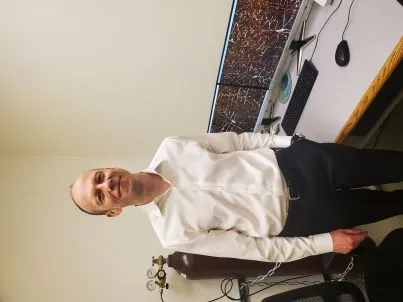
Mentor Match
Finding an Expert

Working with a faculty member on unique projects you both are interested in is an incredibly valuable experience. You will not only develop technical skills in your field, you will also hone many 'soft' skills (e.g. interpersonal communication, time management, collaboration) that will benefit you in many areas of your life for years to come!
Finding a faculty member to work with has often been an informal process where students email faculty with whom they hope to work. The Center for Student Research has streamlined this process by compiling open research opportunities each semester in one location where you can view openings, and apply directly to faculty.
Things to Remember:
- Not all open opportunities are posted here. You may still need to email faculty directly to ask if they are currently accepting undergraduates to help on projects. For guidance on contacting faculty this way, please see the New Researcher Guide
- Not all positions are paid positions. You likely can earn academic credit for your work with faculty by registering for the 9499 Undergraduate Research and Creative Works Couse in your department (with faculty approval).
Faculty with Open Opportunities
Colin T. Mahoney, Ph.D.

Psychology
Description of project: There are a variety of research projects that undergraduate RAs can get involved in, including opportunities to form your own research questions, design a secondary analysis, conduct analyses, interpret findings, and disseminate at conferences and/or as manuscripts in peer-reviewed journals. However, the primary study is qualitative in nature and with female trauma survivors of both sexual assault and intimate partner violence. These interviews are focused on the function of substance use within the context of trauma and PTSD.
Responsibilities: Responsibilities include transcribing audio recordings of qualitative interviews, conducting literature reviews, formatting manuscripts for publication, managing datasets, and learning to interpret statistical findings.
Eligibility: Ideally, students will have completed a course in Abnormal Psychology as well as Research Methods prior to joining the lab.
Number of positions: 1
Is this a paid position?: No, but students can complete independent research credits for their work
Time Commitment: 2-5 hours per week for both the fall and spring semesters (about 32 weeks).
When do you need the students to start by? As soon as possible.
What materials would you like the student to submit to apply? A brief statement of interest, CV/resume, and an email to my lab manager, Kelly Dixon (kodonne2@uccs.edu).
Guy Hagen, Ph.D.

Biofrontiers
Description of project: Several methods are now available which are able to produce optical fluorescence microscopy images of cells and tissues with a resolution that is not limited by diffraction. These methods, known together as super-resolution microscopy, are currently limited in their capabilities and applications when imaging tissues and live cells. This interdisciplinary project will improve super-resolution microscopy for studies of the molecular basis of allergic responses, which affect more than 50 million Americans each year.
Responsibilities: data collection and analysis, designing new imaging systems, work with cell cultures and model organisms
Eligibility: sophomore standing, first year chemistry or physics courses with lab completed, any STEM majors
Number of positions: 3
Is this a paid position?: Yes, it is paid
Time Commitment: maximum 25 hours per week throughout the year
When do you need the students to start by?: immediately
What materials would you like the student to submit to apply? email only ghagen@uccs.edu